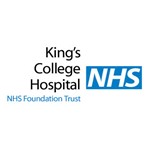Kings College Hospital

King’s College Hospital is based in the community of Camberwell and serves the local population of Lambeth, Southwark and Lewisham. The Trust is recognised internationally for their work in liver disease and transplantation, neurosciences, cardiac, blood cancers and foetal medicine.
Business need
The Trust had great concern over the increased level and sophistication of identification fraud and felt it unreasonable, even with Home Office guidance, for a recruitment administrator to bear the burden of identifying fraudulent documentation.
Solution
Using a TrustID Document Scanner, recruitment administrators are now able to confirm authentic documents within a few seconds, and to a much higher level of sophistication that is possible by sight alone.
Taking positive action
Working jointly, the Human Resources Department and the local NHS Counter-Fraud Team explored technological solutions that were commonly used by the UK Border Agency and other agencies.
Following a procurement process, the Trust partnered with TrustID and installed two TrustID Validation Systems for the rapid authentication of key identity documents such as passports, visas and driving licences. The scanner uses a variety of light sources and other checks to verify that the document is authentic or highlights potential problems that may indicate otherwise. The HR team was provided with the training and procedural advice required to enable them to properly investigate potentially fraudulent documents.
The project in practise
The technology was quickly installed and soon became a regular part of the HR team’s identity and right-to-work checks. All prospective employees are required to present their identification and right-to-work documents to the HR office, where a recruitment administrator uses the document scanner to check their authenticity. If a problem with the document is detected, this is dealt with very sensitively. The scanning system automatically stores a copy of the documentation so the individual can be given their originals back. Nothing is said to the individual until a full investigation has taken place; this is to avoid causing unnecessary worry/embarrassment but also to avoid compromising a potential criminal investigation.
Conclusion
The Trust has been using the system since 2010, and it has proven a welcome addition to the identity checking process with the recruitment administrators, counter-fraud team. the UK Border Agency (UKBA), the Care Quality Commission (CQC) and the NHS Litigation Authority (NHSLA). The system has dramatically improved the level of identification checks that the Trust is able to perform and this they believe plays a critical role in ensuring patient safety. The system has substantially streamlined the verification of identity process by enabling the recruitment administrator to verify the authenticity of documents without expert knowledge of their security features and reduced the administrative time of conducting such checks.
The use of this technology recently led to the arrest and conviction of an individual who worked as a nurse in another NHS organisation and attempted to gain employment at Kings College Hospital.
Sign up to receive updates
Receive notifications from TrustID direct to your inbox. Simply fill out your email address in the form below.
Want to find out more?
We’d be really happy to chat through your requirements and offer advice on the best service for your business.
Tel: 0118 466 0822 or
Request a callback


